A road trip is an American tradition and a great way to travel affordably. And a good road trip requires a good plan. This is true whether you’re checking a dream destination off your bucket list or getting to know an area in a way you simply can’t from an airplane.
While there are many reasons to take a road trip, you’ll need to prepare and plan your budget. In fact, whether you’re preparing for the trip of a lifetime or the trip of a weekend, road trip planning can be almost as fun as the journey itself.
Read on to learn how to plan your travel, save money on road trips and see what you should pack before you hit the road.
How to Budget for a Road Trip
The best way to make sure a road trip won’t break the bank is to create a budget ahead of time. There are all kinds of sneaky expenses you may forget to tally (tolls, for example!) that can add to the cost of a vacation on wheels.

The first step in budgeting for a road trip is to list all the expenses you may incur along the way, like:
- Gas: Wondering how to calculate gas for a road trip? Use GasBuddy’s trip cost calculator to get an idea of how much gas will cost on your road trip. You’ll plug in your starting point, destination and route. Then add the make and model of your car, and the tool will give you a total. You can also reference GasBuddy’s gas price charts to factor rising fuel costs into your budget and find the cheapest prices by state. If you drive an electric vehicle, be sure to plan your charging stations along the way.
- Vehicle prep: Plan to pay for any preparation your vehicle might need before the trip. This includes things like an oil change, new tires or battery, or a check by a mechanic to make sure your car is running well.
- Lodging: Add in the cost of hotels or other accommodations, like camping, which is cheap but not usually free.
- Food: Tally the anticipated cost of meals, snacks and drinks for the road.
- Tolls: Check your route ahead of time to see if you’ll be traveling any toll roads. Add up those costs.
- Parking: Remember that you may need to pay to park. For example your hotel may charge for valet parking or if you’re planning to park in a big or small city you may also have to pay to park.
- Souvenirs: If you plan to hit some of America’s roadside attractions, from the shoe tree to the world’s largest ball of twine, you may want to budget to purchase mementos along the way.
- Entertainment: Plan for entry fees for parks and attractions, plus anything else you’ll be doing or seeing that isn’t free.
- Emergency fund: It’s unlikely, but a flat tire or breakdown is always possible. You may want to bank some money just in case and possibly invest in an AAA membership.
- Car rental: When renting a car for a road trip, make sure you include fees and insurance in your budget.
Once you’ve completed your list, start researching prices for these items in the areas and times of year that apply to your trip.
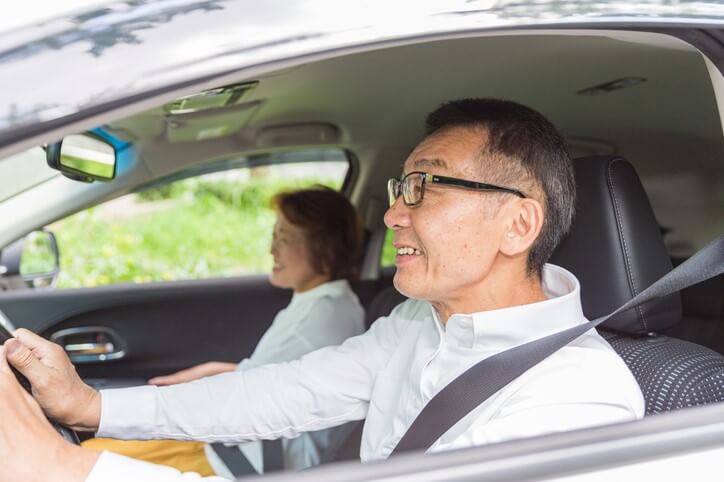
How to Save Money on a Road Trip
Once you have a general idea of how much your road trip will cost, you may want to cut expenses. Here are five ideas for saving money on a road trip:
- Rev up your fuel efficiency. For those driving a non-electric vehicle, don’t forget that you can save money on gas on a road trip by making a few simple changes. For instance, on average, 100 pounds of cargo can reduce your fuel economy by 1%. And a rooftop cargo container can reduce your fuel economy by 25%. To save on gas, limit your cargo and store items in the trunk of your car instead of on the roof.
- Plan affordable meals. Something as simple as packing snacks from home can save you a considerable amount of money on a road trip. For a shorter trip, you can pack simple foods like apples with peanut butte, carrot sticks and sandwiches. On longer trips, seek out grocery stores, farmers markets and local restaurants. Bring a supply of water, too; staying hydrated will help keep you alert, and buying bottled water at convenience stores can be pricy.
- Check your credit card benefits. A credit card you already carry in your wallet may have benefits that could save you money on the road. For example, some cards have concierge service that will help you plan trips for free.
- Plan ahead to avoid problems. Unexpected problems on a road trip can cost you money. A car breakdown is the most obvious, but there are other issues that can crop up. For example, you may get stuck in traffic or hit construction. You may also get tired while you’re still hours away from your hotel or camp ground. Or, you may need a charging station sooner than you anticipated. Allowing extra time for delays or time zone changes and building in back-up plans (for example, making sure you can cancel or change your hotel reservation without a charge) can help save your cash. Packing the right items can also help you avoid expensive mistakes and emergency pit stops along the way.
What to Take on a Road Trip
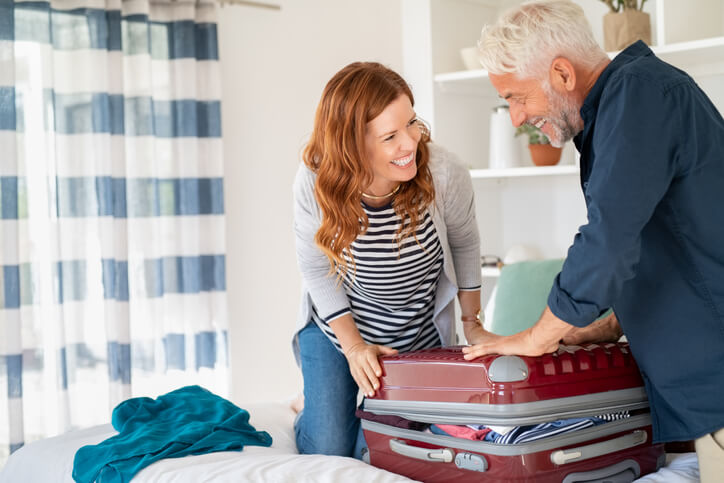
Packing the right road trip essentials is key to having a good time and staying on budget. Here’s a road trip packing list to get you started:
- Road trip smartphone apps. Before you go, download some travel apps for road trippers. Google Maps or Waze can help you get driving directions, check alternate routes and see current traffic conditions. You may also want to carry a paper map – the old-school variety or something printed from the internet, as a backup in case you have GPS issues. The Weather Channel or another weather app will let you check weather and road condition. An app like AroundMe can help you find the closest ATM, coffee shop, gas station, hospital, supermarket, etc. And, a parking app such as ParkMobile or SpotHero can help you find and pay for parking in big cities.
- Trip information. Have your trip planned out ahead of time, and stash all of your important information in one place. That could be in a trip planning app on your smartphone or in a folder in the glove box. You’ll also want information like:
- Which attractions you’re going to
- Car rental details
- Reservation numbers
- Weather forecasts
- Hotel names and addresses
- Contact information for anyone you plan to stay with or meet along the way
- A spare key for your car. Carrying a spare key in an alternate location can keep you from accidentally locking your keys in your car and having to call a lockout service. If you’ve got a travel companion, consider having each person carry a key.
- A roadside emergency kit. Create a car emergency kit that contains all the supplies you’d need in a pinch. Your kit should include things like:
- A flashlight and extra batteries
- Flares
- Jumper cables
- A spare tire
- Drinking water
- A tool kit
- Non-perishable snacks
- A first aid kit
- Blankets
- Extra clothes
- An auto safety hammer, which should be kept near you in the car.
- Seasonal essentials if you’re traveling in winter
- A cell phone and charger, which should also be within arms reach, if needed.
- Clothing for the road. Make sure you have comfortable clothes for driving, including clothes that help keep you covered up from the sun, plus appropriate outfits—including outerwear and shoes—for any activities you plan to do. One perk of traveling by car is that you can bring an extra suitcase… or two!
- Sun supplies. A good pair of polarized sunglasses can help keep you safe and comfortable behind the wheel. And don’t forget sunscreen—yes, you can get a sunburn in a car!
- Important documents. Make sure you have your car insurance ID cards and your auto registration in your glove box. Also be sure to carry your:
- Driver’s license
- Health insurance card
- Prescription medication
- Emergency contact information
While you’re concentrating on getting out on the road, don’t forget to prepare your home for when you’re away. Before you go, take care of chores like having your mail held and arranging for someone to check on your house while you’re gone.
And who knows? Maybe after this trip, you’ll be inspired to start traveling the country, seeing the sights, following the sun or simply chasing the next adventure.


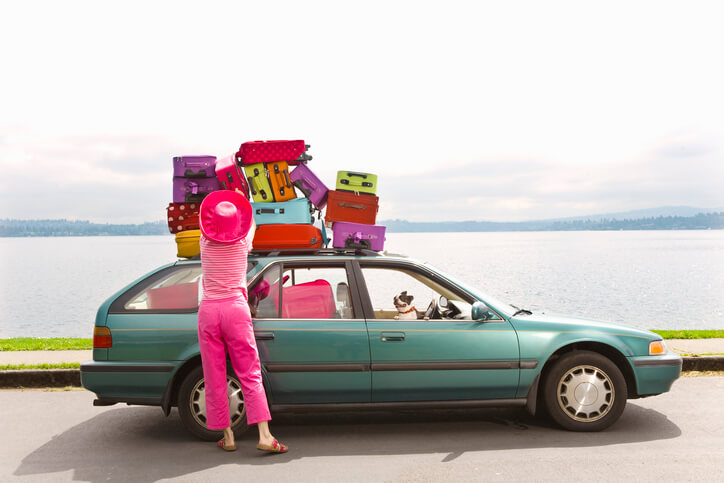
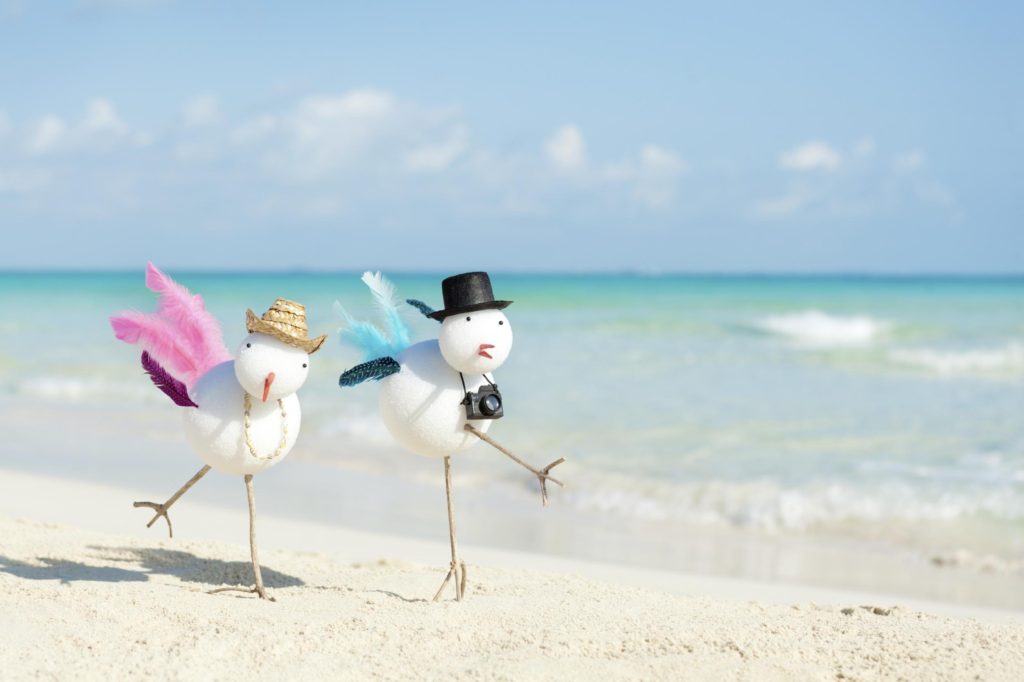
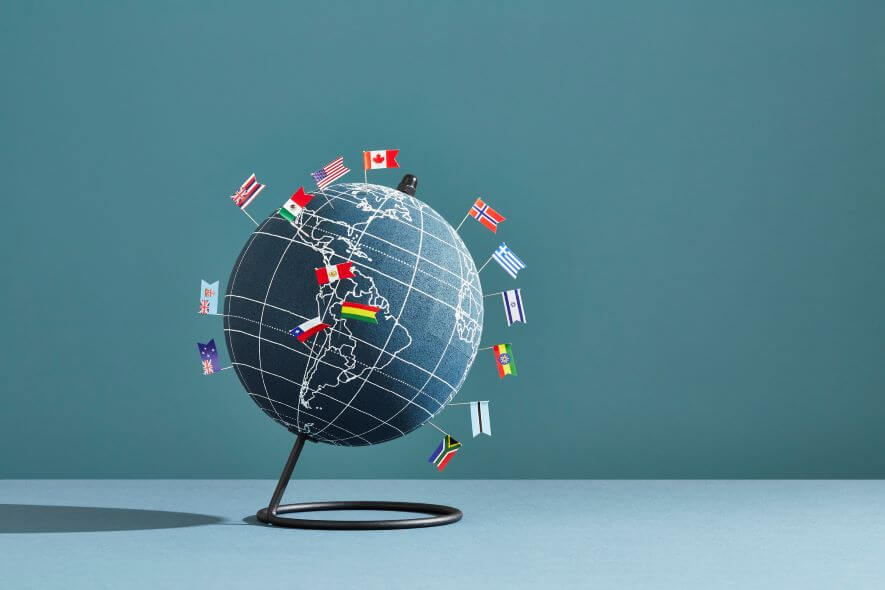


Taking a road trip this Fall. This article was both interesting and most beneficial. Thanks!
I liked the resources and the emergency list to carry items.